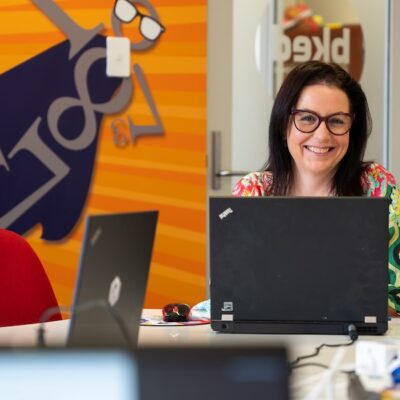A lawtech startup aims to help prevent millions of dollars of cryptocurrency and digital assets becoming inaccessible each year as Kiwis pass away or lose their passwords.
The launch follows a series of high-profile cases where individual account holdings of up to $2 billion in cryptocurrency have become permanently locked when their owners die unexpectedly.
According to latest IRD figures around ten percent of the New Zealand population, more than 515,000 people, own crypto assets.
Facilitating the transfer of crypto asset ownership requires a set of both public and private keys. Public keys are similar in function to a bank account number, while private keys act as the password to ‘unlock’ the account and prove ownership.
Private keys can take a number of formats ranging from a 256 character code through to a seed phrase – a series of 12 to 24 words which can be used to restore the account on a new device.
Industry data suggests around US$140 billion or 20 percent of all existing Bitcoin, the most commonly held digital currency, has been lost or is stranded in inaccessible wallets.
Crypto estate planning startup Everlasting is the first digital currency self-custody service in Australasia, and is one of only a handful of companies operating globally which provide a distributed security mechanism for the transfer of digital assets to estate beneficiaries.
The company’s business model was designed by a team of lawyers, accountants and digital security specialists to work within New Zealand’s common law framework.
When the owner passes away, the service will work with estate lawyers, who also hold a key, to ensure access to the asset is distributed to the beneficiaries.
Self-custody services address a number of the inherent security issues associated with holding assets in a centralised exchange, digital or physical wallet – which can be lost or stolen.
Paul Salisbury, co-founder of Everlasting says their research shows over 1,400 Kiwis who own cryptocurrency will pass away annually.
He says despite advancements in the technology used to create digital currency wallets, there is little redundancy in place if a private key is lost or forgotten.
“Industry research shows that 89 percent of crypto owners worry about dying with their digital assets but only 23 percent have a documented plan to protect their legacy.
“We know that in most countries, a traditional bank can be required by a court to pass on ownership of an account to the beneficiaries of a deceased estate.
“Cryptoasset holdings, however, may cross several legal jurisdictions and there is no standard framework in place to force a cryptocurrency platform to turn over ownership to a next of kin.
“Our service addresses this issue by providing a mechanism for cryptoasset holders to create a legacy for their loved ones – which can be transferred at the appropriate time.
“Lost seed phrases can also be easily replaced by their owners once their identity has been verified,” he says.
Luke Ryan, Everlasting co-founder and chartered accountant, says the company is developing partnerships with crypto services and around 30 local and international law practices, accountants, and estate providers, and plans to rapidly expand into strategic offshore markets.
Export focus
Ryan, who along with Salisbury draws parallels of legacy from their Maori whakapapa, says despite significant interest from North America, their focus is on other export markets with lower barriers to entry first while keeping Aotearoa as the hub of operations.
“We know there is a significant and growing market both in New Zealand and globally for non-custodial services like ours as most legal practices don’t have the processes and facilities in place to secure digital assets on behalf of their clients.
“Initial demand from the local market is higher than expected and we have already onboarded over 50 clients in the weeks since we reached out to legal firms around the country.
“We are also currently preparing to launch in Australia and Singapore in the next quarter, where we will be the first service of its kind. From there we will expand to other common law jurisdictions,” he says.
“Uptake of cryptocurrency is higher in Australia than New Zealand, which presents a significant opportunity for us in that market.
“The key criteria for new markets is a compatibility with their legal framework and at this stage the world’s largest crypto market, the US, will be out of reach.
Salisbury says client data is secured with at least 256 bit digital encryption and Everlasting has also built in globally redundant processes to ensure owners can access their assets in the event of natural disaster impacting their own firm.






